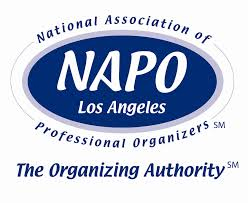The Mass-Media Madhouse
(Press-Central For Handy Soundbites, Useful Info,
And A Good Wet-Your-Pants Laugh)
Home / The Mass-Media Madhouse
(Press-Central For Handy Soundbites, Useful Info,
And A Good Wet-Your-Pants Laugh) / Professional Organizer’s Blog Carnival / As Published In Professional Organizers Blog Carnival --
Ten Steps To Financial Freedom
As Published In Professional Organizers Blog Carnival —
Ten Steps To Financial Freedom

Financial freedom — that’s the American dream, isn’t it? But how many of us actually stand any chance of achieving this grand and glorious goal? Buried in credit card debt, living in houses we can barely afford, spending more than we make and putting nothing away for the future — I don’t see it happening. Financial independence is well within our grasp — we just have to make a few fundamental shifts in the way we choose between instant gratification and future security.
Understand What Financial Freedom Really Means
What do you think of when you imagine being financially independent? Living on an island in the South Pacific in the lap of luxury? Being able to buy anything and everything you want? Owning 12 cars, a yacht, and a mansion in Beverly Hills? Indulging in all those “Lifestyles Of the Rich And Famous” fantasy that the media has planted in your head? This sort of daydream might be part of the reason why so few of us ever discover what real monetary security feels like!
Here’s a little reality check for you — financial freedom has nothing to do with the size of your bank account or investment portfolio. It’s not determined by what you own or buy. In fact, financial freedom is less about wealth and more about liberty from monetary worries. Someone who earns $10,000 a year can achieve financial independence as easily — sometimes more so — than a person who earns 30 times that. It’s all a matter of perspective.
Let me share my vision of financial independence. Imagine having no debt — no credit card bills, no car payment, no loans, no mortgage. Imagine having reduced your regular monthly expenses to an unbelievably low level that you can very easily afford without much effort. You have a healthy nest-egg stashed away for emergencies, so a sudden car repair or injury doesn’t send you into a financial panic. You live in a reasonably-sized home that is paid off and inexpensive to maintain. You receive at least some income to enjoy now from your steady habit of investing, yet you still have plenty to cover you into retirement and old age. You live well within your means, buying nothing that you can’t afford to pay for at the time. And you are frugal and deliberate with all of your spending decisions, buying only what will enrich your life (and not worried about trying to keep up with the Joneses.) Finally, you don’t have to work if you don’t want to — at least not full time. You have plenty of time to pursue other interests without feeling the pressure to “pay the bills.” You live a life of fulfillment, with a minimum of stress.
Sound like a pipe dream? It’s a heck of a lot more realistic than the idea of retiring as rich as Bill Gates! And a lot of people are shifting to this philosophy of voluntary simplicity in an attempt to escape their financial burdens. But more about that later!
Change Your Attitude About Money
The first obstacle to financial freedom is the way we view money. We, as a society, are incredibly hypocritical about our finances. We place such importance on income and material possessions that we’ve come to define ourselves (in many ways) by what we make and what we own. At the same time, debt has become the norm, all too commonplace and accepted — and for some, it’s even considered a badge of honor. People talk about how expensive that new car or house was with a kind of pride, as if their overspending and conspicuous consumption afforded them a special status. But when folks take steps toward simplifying, their choices often make their “peers” uncomfortable. What do you mean you’re pulling little Susie out of that expensive private academy and quitting your 6-figure salary and moving a smaller house in a less-exclusive neighborhood? Don’t you care about your future?
All in all, it’s a very unhealthy approach. We’ve made progress toward overcoming the taboos of dealing openly with other addictions — we need to do the same with our obsessions about money. The first step is to understand that money is nothing more than a means to an end. The accumulation of wealth (and “stuff”) is meaningless in and of itself. Money is only valuable in terms of the non-material things it can buy you — unfettered time, security, the freedom to really enjoy your life and the people around you. But we also need to recognize that money is not the root of all evil. It has no qualities beyond the purpose for which we use it. Only when we relieve money of its falsely elevated (or lowered) status can we see it for what it really is — a tool.
Re-Evaluate Your Spending Priorities
So, with this fresh perspective, let’s talk about how you spend your money. Look honestly at the things you own, the bills you pay, the debt you incur. Are your spending habits in alignment with your values? Here’s an example of what I mean. Let’s say you claim that your children are a priority. But over the years you have chosen to purchase an expensive car, two homes, a boat, and a houseful of “stuff.” You eat out regularly at high-end restaurants, you take expensive vacations, and you are carrying a tremendous amount of debt. And you feel that you HAVE to work 70 or 80 hours a week, including evenings and weekends, to “pay the bills.” You rarely see your kids, but at least you’re giving them everything materially that their hearts desire. At first, it may seem that you are providing them with a good life, but wouldn’t they benefit more from your time and attention? In hindsight, are these really the wisest spending decisions?
Achieving financial independence is all about making value-based spending decisions proactively, before you regret having gone the wrong way. It requires that you avoiding impulsive purchases, making every choice about how to invest your precious resources a conscious one. It also means moving beyond the insane need to keep up with your peers — to own the newest, sexiest, and most expensive “toys” out there. And you really have to view money as more than cash — you need to see it in terms of the time and energy it takes to earn it.
Plug Your Spending Leaks
Think about all the “stuff” you buy each day without really paying attention — snacks at work, a magazine when you stop for gas, that cup of coffee on your way in every morning. And don’t forget about those expenses that exist only when you live in a state of financial disorganization — interest on your credit card debt, late fees because you forgot to return that movie on time, overdraft charges because you didn’t balance your checkbook. All of these fall into the category of “unconscious spending” — you just do it because it’s a habit. And although a dollar here or 50 cents there may seem insignificant, it can really add up. That’s why I call them money leaks — drop after drop after drop until you suddenly realize that you’re out hundreds (or thousands) of dollars on meaningless spending that hasn’t improved your quality of life one bit. And, unlike a plumbing main leak, you can’t call up the water company and have them credit your account!
What’s your vice — eating out just because you’re feeling lazy? Buying a bunch of magazine subscriptions that pile up around the house because you never have time to read them? Procrastinating on paying your bills because you don’t want to have to take the time to reconcile your checkbook? If it’s a drain on your finances that doesn’t provide you with any tangible benefit, do your best to eliminate it. Get organized, sign up for an automatic bill-paying service, plan your time better — do whatever is necessary to get it together. However, don’t stop there. You also have to look at those “spending leaks” that give you pleasure and satisfaction — like the morning Starbucks or daily take-out lunches. These, while momentarily enjoyable, can still get in the way of other priorities. Decide how often you can reasonably afford to indulge and still reach your other financial goals. Also look for unnecessary convenience expenses — things that we spend money on because we are overwhelmed, too busy, or just worn out. Perhaps by re-evaluating how you use your time, you might discover that many of these expenses are just symptoms of misplaced priorities.
Spend Less Than You Earn
This sounds fairly simplistic and dangerously like common sense, but it’s amazing how many of us fail to stick to this one basic principle. But we live in a culture of instant gratification — as a society, we are nearly incapable of sacrificing in the present for a benefit in the future. For example, I have some friends who wanted to buy their first house in their early 20s. But instead of choosing a small, affordable “starter home,” they built a five-bedroom, three-bath house with a pool, professional kitchen, jacuzzi-tub — the sort of place our parent’s generation hoped to have after gradually working their way up the housing market over a period of decades. At the time, it struck me as tremendously more house than a young couple with no kids really needed. Needless to say, even 15 years later, my friends are still deeply in debt — their relationship is suffering because of money troubles, they’ve put all savings and investing on hold, and must forgo the recreational activities they used to enjoy. All because of the damned house!
The point of this tale is not to judge my friends. I just don’t understand how this purchase has improved their quality of life — in fact, it seems to be actively detracting from it. I am not suggesting that my friends don’t deserve this house, I simply question whether they wouldn’t have been happier if they had chosen something more immediately affordable, and put the extra cash toward toward upgrading down the road. So many other financial and personal goals have been put on hold because of a spending decision that could have been scaled back without the least bit of pain. And the really ironic part is that the pressure to go overboard often comes from an outside influence, rather than our own personal values (in this instance, there was a whole lot of trying to impress the parents to show them how well my friends were doing — and the realtor convinced them to take on a bigger mortgage than they could afford based on the idea that their income would go up and the payment become easier over time.) When our spending decisions are not our own, we stand a very large chance of getting in over our heads. But this trap can easily be avoided if we choose to live within our current means rather than counting on future earnings to pay off our debts.
Pay Off Your Debts — Now!
Your first priority on the road to financial independence should be to become debt-free. Loans and credit cards carry ridiculously high interest fees — and if all you do is pay the minimum, you will never dig yourself out of that hole. You might think it’s smarter to put money away for a rainy day, but it’s unlikely that your investments are earning anywhere near the interest rate on your liabilities — so no matter how much you scrimp and save, you still end up at a loss. If you want to be free of this particular financial yoke, it’s time for drastic measures. You might consider suspending your investments and taking a break from putting away money in savings — just temporarily. At the same time, eliminate as many of those “luxury” expenses as you can manage for a few months (it hurts less to really tighten your belt if it’s only for a limited time!) Then focus all of your financial energies on paying off your debts. Plan to knock out the highest interest debt first, then move to the next highest and the next, until you have cleared them all out. No excuses, no rationalizations, just do it!
Use Credit Cards Judiciously
Let’s face it — most people use charge cards not to build credit, but to buy things that they can’t afford at the present time. However, you are taking a big risk when you assume that you will be able to pay these purchases off at some point in the future. What if the economy tanks or you lose your job? And if you can commit to paying off a debt (plus interest) after the purchase, why can’t you save the money ahead of time? It will cost less in the long run — and you might even earn a little money as your cash accumulates interest in the bank! Know that I am not diametrically opposed to the use of credit cards — they can be a terrific way to simplify bill-paying and keep track of your expenses. Not to mention the fact that purchasing your basic necessities (groceries, gas, clothing) with a charge card is a fabulous way to build good credit (and make a little money on your spending with a cash-back reward!) But you have to pay your entire balance off each month — otherwise you are simply flushing money down the toilet on interest fees.
Reduce Your Monthly Expenses
Now we get into the real meat and potatoes of becoming financially free — deciding which expenses are necessary and which are simply wasting your extra money. I’m not just talking about cutting back on the number of times you eat out each week or how much you spend on your vacations. In order to really trim the fat from your budget, take a good hard look at those expenses you’ve always thought were unchangeable. Is it really necessary that you and your wife and one child live in 10,000 square feet of space? And if you had to make a choice between the house and not having to work 80 hours a week (or not having to work at all), which would be more important to you? Can you get by with one car? Would your vacations be just as pleasurable if you flew coach or stayed in a three-star hotel? We get accustomed to demanding the very best because we feel that we deserve to be pampered after all of our hard work. But if we didn’t pamper ourselves so much, we might not have to work so hard in the first place.
Set Up An Emergency Account
What kinds of expenses tend to throw off our budgets and cause us to rack up unwanted credit card debt? The unexpected kind! Think about all the times you’ve had a car repair or medical bill or other expense creep up on you when you didn’t have any cash on hand. And what happens when the economy tanks and you are “downsized” out of a job — what will you live off of? The solution is easy — set up an emergency savings account to cover you when disaster strikes. You should put away at least six months worth of income — a year is even better — so you have something to fall back on. Of course, this kind of saving comes after you have paid off all of your debts — just start taking the money you were putting toward credit cards and loans and begin socking it away in the bank. And remember, the money in this “rainy day fund” is only for emergencies — if you want to take a vacation or buy a new stereo system, set up a separate savings account for purchases.
Develop The Investing Habit
The final step in achieving financial independence is to really (and I mean REALLY) put money away for your future. If you want to get to a point where you don’t have to work and can still live comfortably, whether you expect that to happen at 45 or 65 — you must start planning for it as soon as possible. There’s this great little invention out there called “compound interest” that allows you to earn money not only on what you have invested, but also on the interest you’ve earned in past years. This is the easiest way to geometrically increase your earnings — but it only works only if you follow three basic rules:
- First, invest regularly — putting a set amount of money aside each month for your future. Don’t just invest when you have some extra cash laying around — rearrange your expenses so you can always afford to “pay yourself first.” You’ll thank yourself for setting up this habit later.
- Second, don’t attempt to time the stock market, putting money in when prices are low and yanking it back out again when they are high — you’ll end up losing out in the long run. Plan instead to invest for the long run. No matter how things appear today, you need the patience to see farther into the future. Over any given 20-year period, long-term investors always end up making money — regardless of dips and plunges in the stock market. Remember that over the last 75 years, the stock market has seen an average gain of 10% per year (even with several recessions thrown in) — not bad, when you look at the big picture.
- Finally, diversify. The people who lose serious money when investing are the ones who put all of their eggs in one basket, sinking everything they own into a single company. As we’ve seen in recent years, even the “sure thing” stocks can go down in a bad market. But by spreading your money around (lots of different industries, different sized companies, foreign and domestic investments, real estate, stocks, bonds) — you protect yourself against major losses down the road.
I leave you with one final thought — it’s never too late to get your finances in order. And the sooner you begin, the sooner you will be able to live without the burden of debt or fear about the future — the sooner you will achieve financial freedom!
Click here for reuse options!Copyright 2001 RamonaCreel.com
 PS: Wanna instantly rack up some serious virtual cred? I've made it easy for you to share this content with your social networking friends, e-mail it to your peeps, or republish it in your own blog (thereby showing off how smart you are) with these links.
PS: Wanna instantly rack up some serious virtual cred? I've made it easy for you to share this content with your social networking friends, e-mail it to your peeps, or republish it in your own blog (thereby showing off how smart you are) with these links.
(iCopyright widget here)
"I Have More To Say About This... No Surprise!"
If you would like to reprint this page, please contact me






So very true Ramona…thank you for a great article :)
Wow, can I relate to this! A few years ago we were swimming in debt and living in a house we could barely afford but bought due to family pressures. We’ve since sold the house and paid off nearly all the debt (car will be paid off in two months, then we’re free – woo hoo!). We make less money now than we were making then but we have more money available to spend because we’ve eliminated all those interest payments and no longer buy things we can’t afford because “we already owe $xxxx, what’s a couple hundred more?”
This is fabulous advice, but I’m afraid most people aren’t willing to forego their luxuries until they are forced to do so.